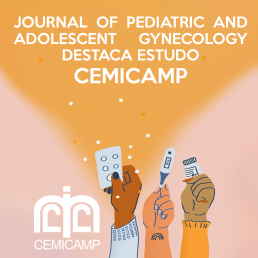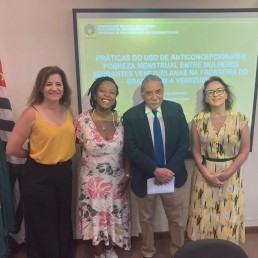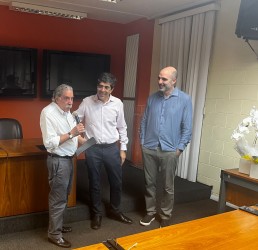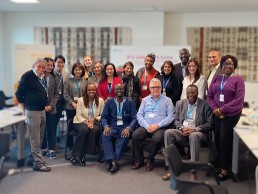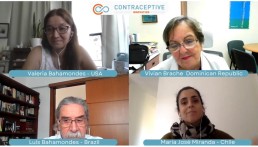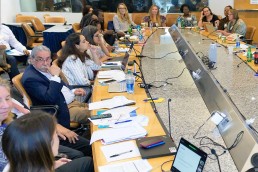Editorial of the Journal of Pediatric and Adolescent Gynecology Highlights Study Conducted at the Centro de Pesquisas em Saúde Reprodutiva de Campinas
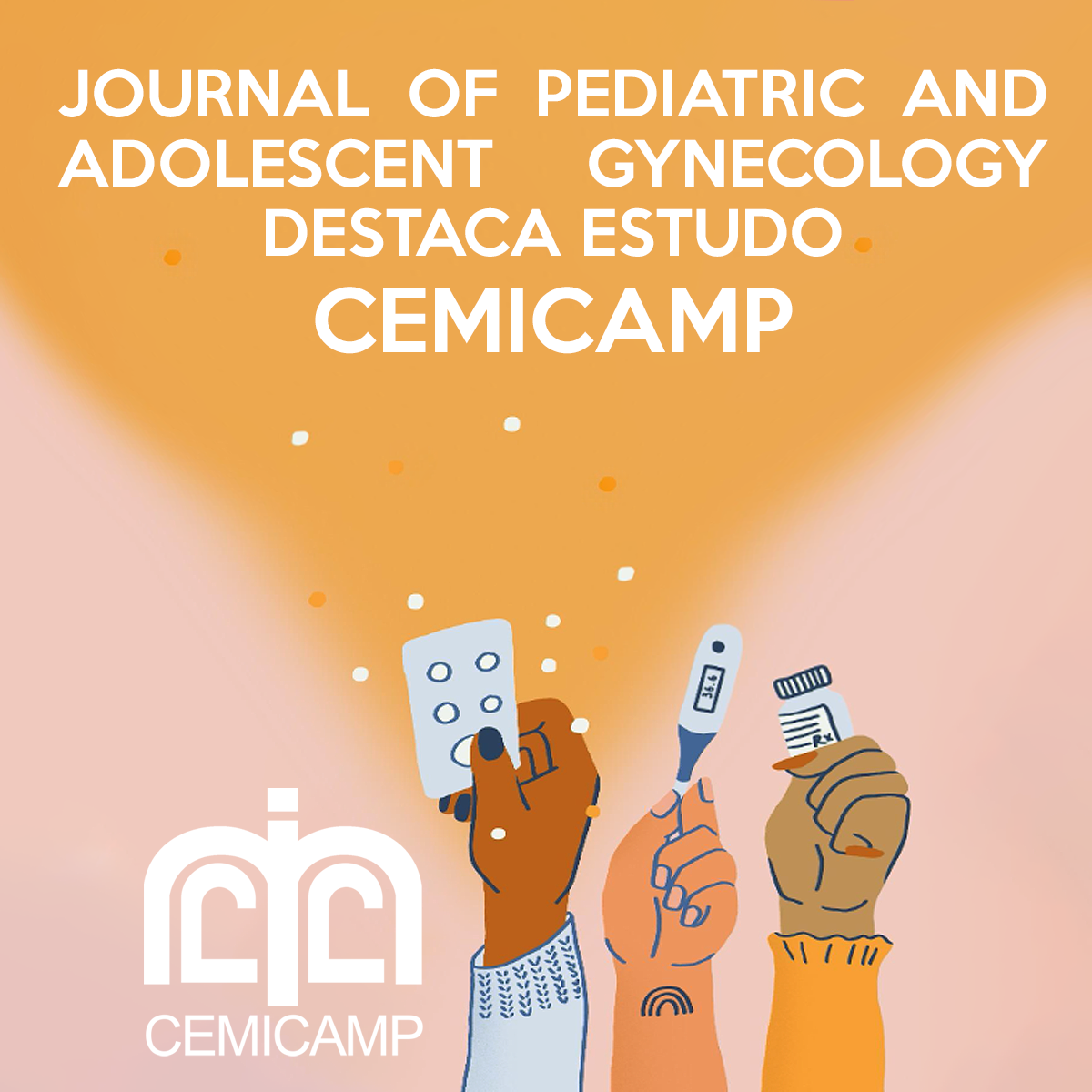 The editorial "Sexual and Reproductive Health in the United States, 2024: How Will You Vote?" (translated freely) by Paula J. Adams Hillard MD (JPAG, Editor-in-Chief) highlights the crucial importance of sexual and reproductive health issues in the November 2024 elections. Written after the primary elections in California, the author emphasizes that while some political races remain undecided, the choice for the presidential race is not as tight across much of the country, both for Democratic and Republican candidates. The author acknowledges that politics can be a controversial topic, even among family members, and that not everyone places the same weight on every political stance of a candidate. However, she points out that in the context of the 2024 elections, the choice between candidates is clear for those who support sexual and reproductive health, reproductive justice, and access to contraception and abortion. A key point addressed in the editorial is a study conducted at the Centro de Pesquisas em Saúde Reprodutiva de Campinas:
The editorial "Sexual and Reproductive Health in the United States, 2024: How Will You Vote?" (translated freely) by Paula J. Adams Hillard MD (JPAG, Editor-in-Chief) highlights the crucial importance of sexual and reproductive health issues in the November 2024 elections. Written after the primary elections in California, the author emphasizes that while some political races remain undecided, the choice for the presidential race is not as tight across much of the country, both for Democratic and Republican candidates. The author acknowledges that politics can be a controversial topic, even among family members, and that not everyone places the same weight on every political stance of a candidate. However, she points out that in the context of the 2024 elections, the choice between candidates is clear for those who support sexual and reproductive health, reproductive justice, and access to contraception and abortion. A key point addressed in the editorial is a study conducted at the Centro de Pesquisas em Saúde Reprodutiva de Campinas:
A recent study conducted by Bahamondes and colleagues in Brazil is shedding light on the efficacy and acceptance of intrauterine devices (IUDs) in adolescents. Recently published, the study is notable not only for its results but also for its innovative approach in an area of medicine that lacks randomized clinical trials: Pediatric and Adolescent Gynecology (PAG).
The study evaluated clinical performance, bleeding patterns, dysmenorrhea, and patient satisfaction with three types of IUDs: the copper IUD, the 52 mg levonorgestrel IUD, and the 19.5 mg levonorgestrel IUD in adolescents, with an average age of 17.9 years, 80.8% of whom were nulliparous. The results, although somewhat expected, provide valuable insights due to the randomized design of the study.
One of the main findings was the high continuation rate of all IUDs, which was 83%. However, continuation was slightly lower with the copper IUD compared to the hormonal IUDs. Additionally, the expulsion rate was higher for the copper IUDs, with 14.9 expulsions per 100 woman-years. The hormonal IUDs also showed advantages regarding menstrual bleeding and dysmenorrhea, with a significantly lower proportion of adolescents reporting these symptoms compared to the copper IUD.
A notable point was the high patient satisfaction rate, with an impressive 97.8% in the group receiving the highest dose of levonorgestrel. This suggests that, despite concerns or doubts some may have about the use of IUDs in adolescents, the vast majority are satisfied with their contraceptive choice.
or healthcare professionals and reproductive health advocates, this study provides strong support for the use of IUDs in adolescents, including those who have never been pregnant. Its significance extends beyond the Brazilian context, having global implications, especially at a time when access to safe and effective contraception is crucial for adolescent health.
While there are still challenges to address, such as education on contraception and access to healthcare services, the results of this study are a significant step in the right direction. They highlight the importance of evidence-based approaches in promoting adolescent sexual and reproductive health worldwide. With further research and increased awareness, we can continue to advance in protecting the reproductive rights of young women.
President of CEMICAMP, Luis Guillermo Bahamondes, Gives Interview to Pesquisa FAPESP
The President of CEMICAMP, Luis Guillermo Bahamondes, Gave an Interview to Pesquisa FAPESP. 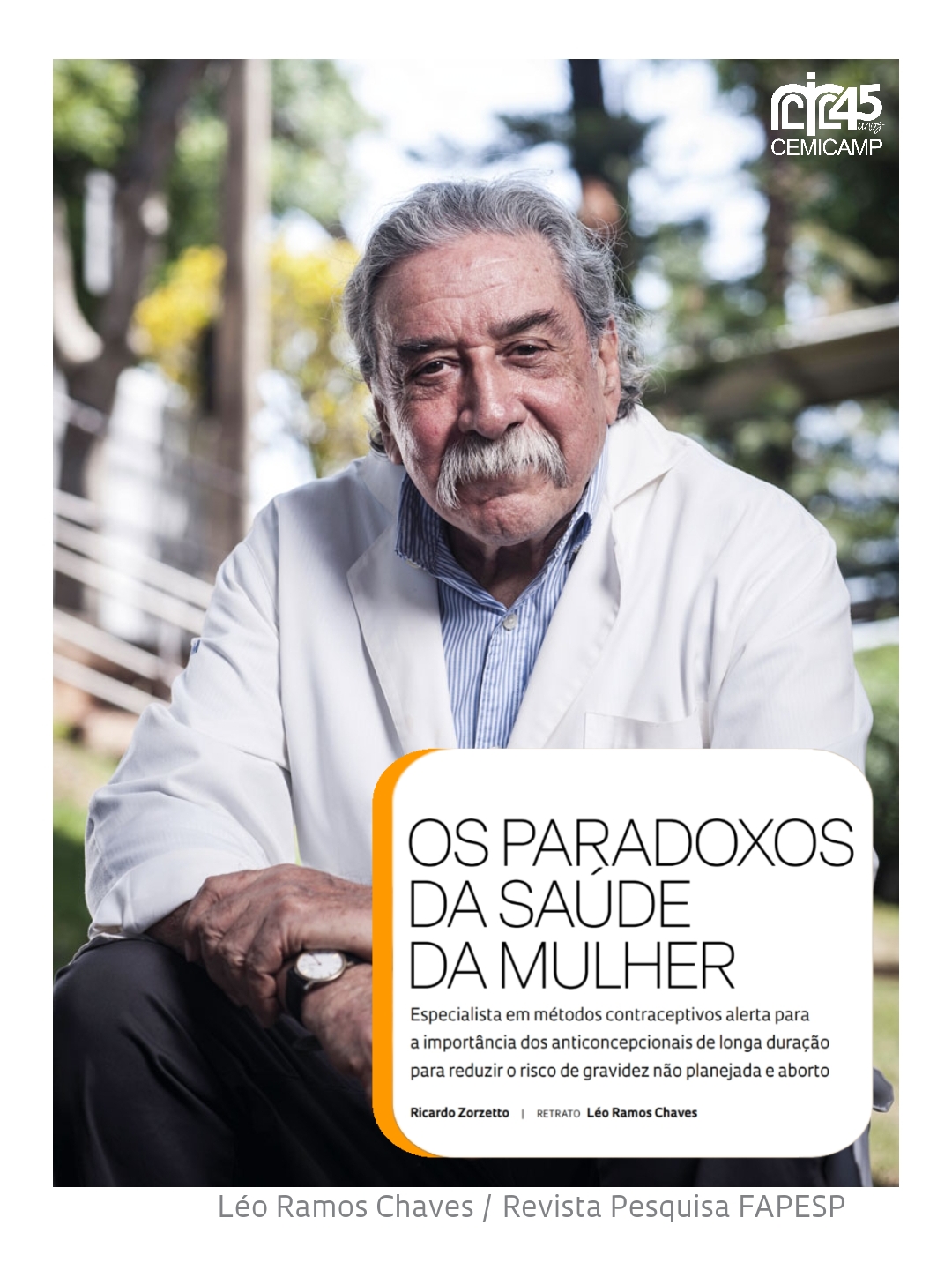 Check out an excerpt below, and the full text at the link:
Check out an excerpt below, and the full text at the link:
"Women, both in Brazil and globally, face four major issues: lack of access to contraceptive methods and care during pregnancy, childbirth, and the postpartum period, as well as inadequate care after menopause and for abnormal uterine bleeding. Much needs to be done to address these needs, and significant savings could be achieved with adjustments in public health policies. In 2014, we published an article showing the cost to the Brazilian public sector for each pregnancy, including prenatal exams and consultations, childbirth, and postpartum follow-up.[os 40 dias após o parto] The total came to $1,000, about R$5,000. It's very expensive. If women who do not wish to become pregnant used an IUD or [dispositivo intrauterino]hormonal implant, long-acting contraceptive methods, the cost to the state would be less than R$1,000. We have tried for years to influence policymakers. We sent each publication from our group with significance for the public sector to the Health Secretaries of Campinas and the state of São Paulo, and to the Minister of Health, with a message: 'Look at this.' Do you know how many times we received a response? None, not even an acknowledgment of receipt..."
Full text:: https://revistapesquisa.fapesp.br/luis-bahamondes-os-paradoxos-da-saude-da-mulher/
Dr. Montas Laporte is awarded a fellowship from the UNICAMP Postdoctoral Researcher Program.
 Dr. Montas Laporte has been awarded a fellowship from the UNICAMP Postdoctoral Researcher Program - Deliberation of Congregation No. 471/2023 of the Faculty of Medical Sciences of the State University of Campinas (UNICAMP). Congratulations, Montas, on the achievement!
Dr. Montas Laporte has been awarded a fellowship from the UNICAMP Postdoctoral Researcher Program - Deliberation of Congregation No. 471/2023 of the Faculty of Medical Sciences of the State University of Campinas (UNICAMP). Congratulations, Montas, on the achievement!
Student Leila Rodrigues Rocha defends her thesis on Menstrual Poverty.
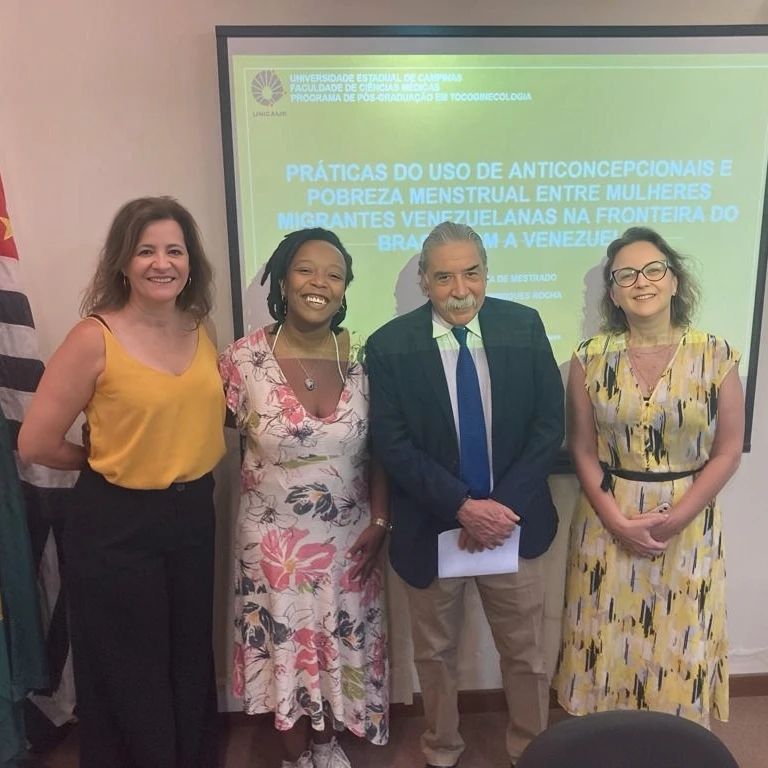 Today, 12/07/2023, master’s student Leila Rodrigues Rocha defended her thesis titled "CONTRACEPTIVE USE PRACTICES AND MENSTRUAL POVERTY AMONG VENEZUELAN MIGRANT WOMEN AT THE BRAZIL-VENEZUELA BORDER," under the supervision of Prof. Dr. Luis Guillermo Bahamondes.
Today, 12/07/2023, master’s student Leila Rodrigues Rocha defended her thesis titled "CONTRACEPTIVE USE PRACTICES AND MENSTRUAL POVERTY AMONG VENEZUELAN MIGRANT WOMEN AT THE BRAZIL-VENEZUELA BORDER," under the supervision of Prof. Dr. Luis Guillermo Bahamondes.
The President of CEMICAMP receives an award for his prominence in the researchers' ranking.
The Faculty of Medicine paid an emotional tribute to the faculty members who excelled in the most recent research ranking, receiving institutional recognition for their exceptional technical ability in generating knowledge at outstanding levels. The renowned publisher Elsevier revealed a ranking that highlights the quality and impact of the academic output of the faculty members, resulting in the well-deserved recognition by the institution. Among the honored researchers was the president of CEMICAMP, Dr. Luis Bahamondes.
At this significant event, the professors were celebrated for their tireless dedication to research, demonstrating excellence in generating knowledge that positively impacts the academic community and society at large. The tribute reflects not only the importance of institutional recognition but also the pride of the Faculty of Medicine in having such notable and committed professionals in its faculty, dedicated to innovation and scientific excellence.
Watch the video by clicking here.
Reunión del HUB OMS de la HRP Alliance for Research Capacity Strengthening
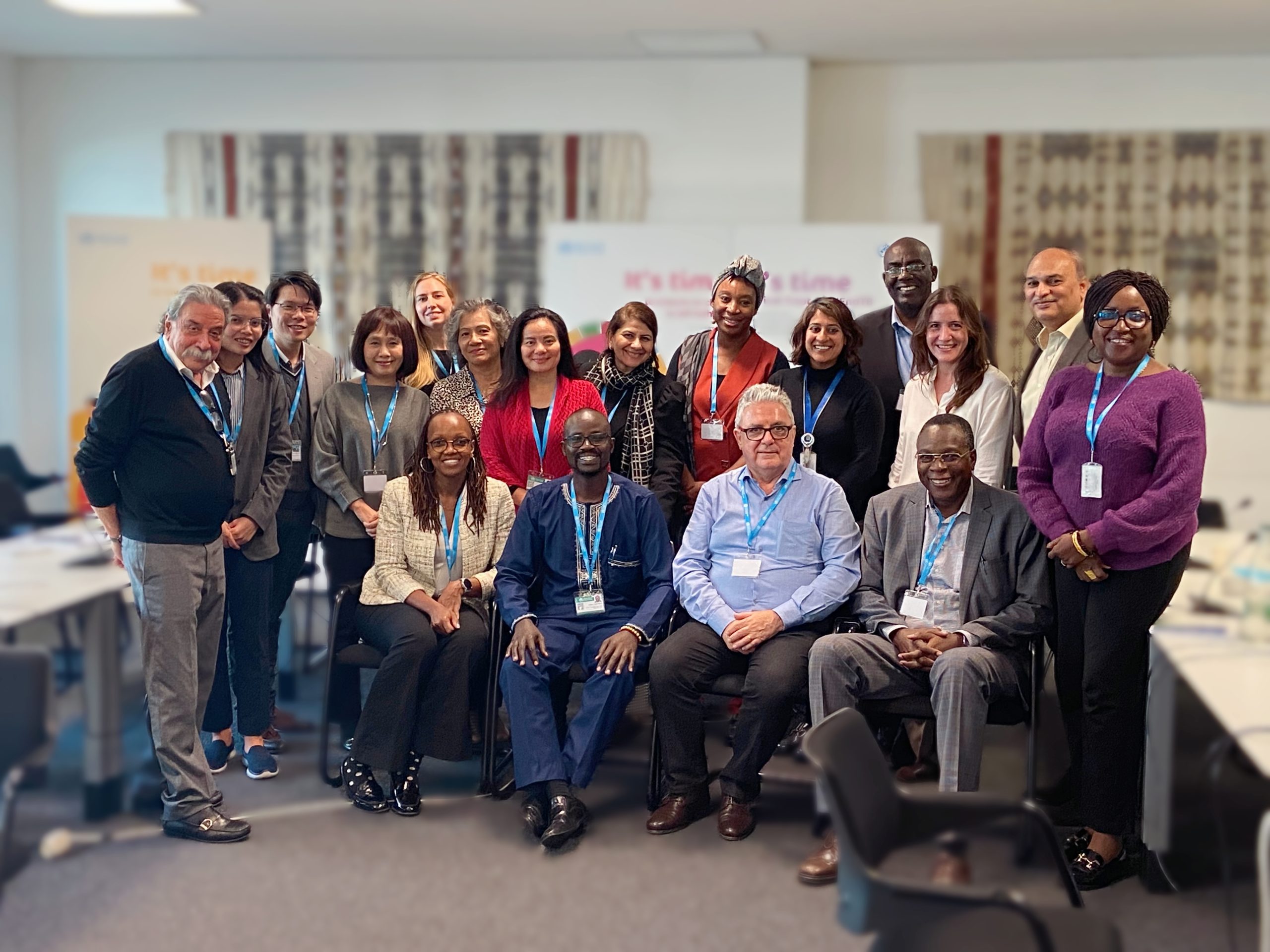
El presidente de CEMICAMP, Dr. Luis Bahamondes, y el Profesor Dr. José Guilherme Cecatti participaron en la reunión de la HRP Alliance for Research Capacity Strengthening, que involucra a los siete centros del programa HUB de la OMS. En esta reunión, se hizo un enfoque claro en la necesidad de redefinir la comprensión convencional de la salud sexual. Se cuestionó el enfoque tradicional, que se centra principalmente en la salud reproductiva y materna, y se reconoció que esto debe abarcar el bienestar general de los cuerpos y las mentes a lo largo de sus vidas, incluyendo la consideración del sexo y género en todos los aspectos de las enfermedades y tratamientos. Además, la reunión promovió ideas audaces que se alinean con las oportunidades mapeadas, con el objetivo de mejorar el financiamiento y los recursos destinados a la investigación y el desarrollo en salud sexual. Se destacó la importancia de demostrar la eficacia de las inversiones en investigaciones, con el fin de impulsar avances significativos en esta área.
Dr. Luis Bahamondes, president of CEMICAMP, becomes Emeritus Professor at UNICAMP.

It is with great honor that we congratulate Professor Dr. Luis Bahamondes, president of CEMICAMP, on his extraordinary achievement of becoming Emeritus Professor at UNICAMP.
This is a well-deserved recognition for his tireless dedication to education and research throughout his distinguished academic career. His passion for teaching and his significant contributions to the academic field of sexual and reproductive health inspire us all.
Perspectives on Contraceptive Research in the Dominican Republic, Chile, and Brazil
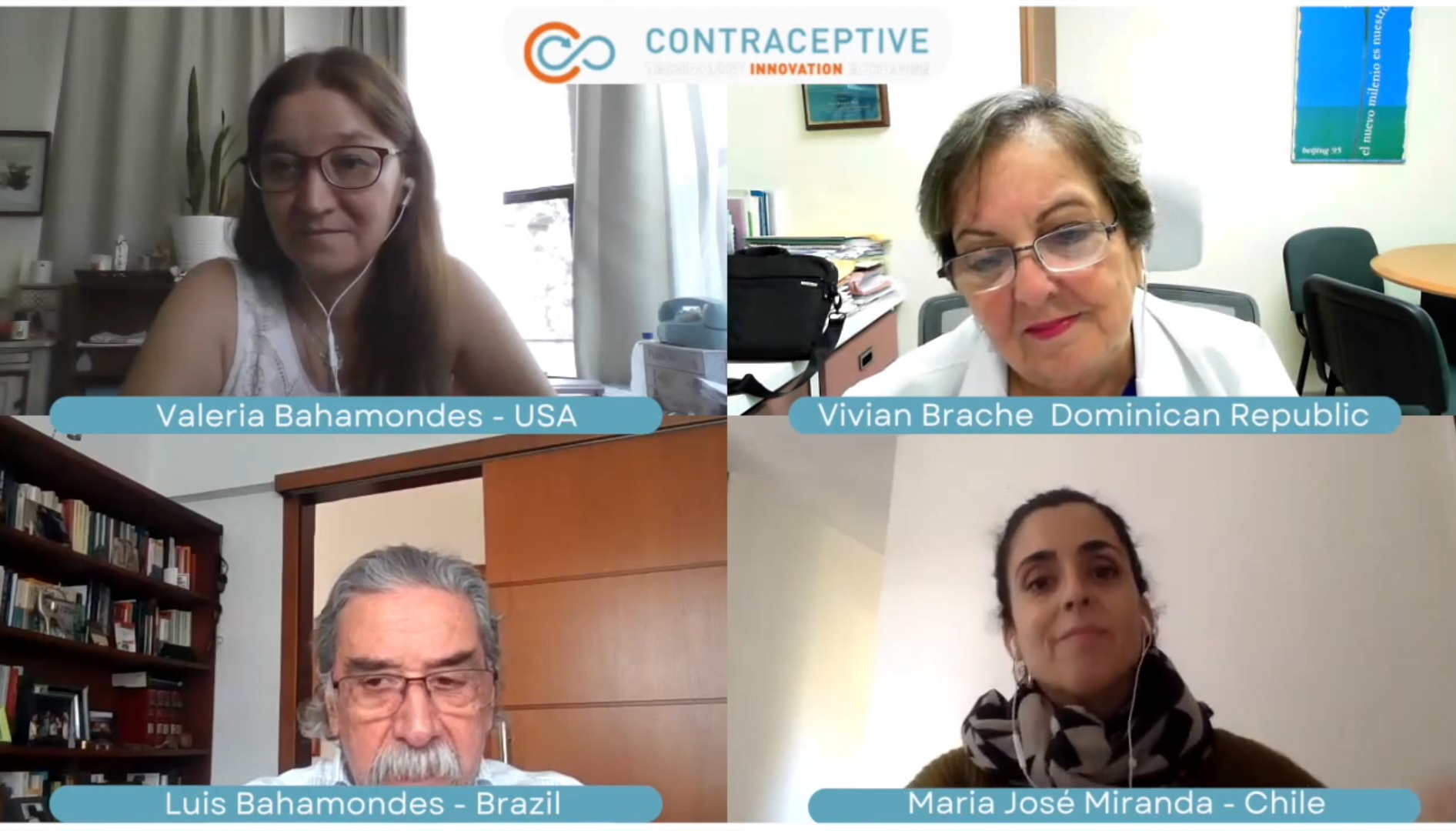 This month, the CTI Exchange highlights the voices of researchers in contraceptives in Latin America.
This month, the CTI Exchange highlights the voices of researchers in contraceptives in Latin America.
"Perspectives on #Research regarding #Contraceptives in the Dominican Republic, Chile, and Brazil"
Dr. Valeria Bahamondes interviews Dr. Vivian Brache (#Profamilia - Dominican Republic), Dr. María José Miranda (Chilean Institute of Reproductive Medicine - #ICMER), and Dr. Luis Bahamondes, president of #CEMICAMP and professor at the University of Campinas. They all share their experiences in conducting clinical trials and contribute their insights into their careers in contraceptive research. Watch the full video on YouTube: https://www.youtube.com/watch?v=oaPj61GEKeEhttps://www.ctiexchange.org/post/contraceptive-research-perspectives-from-the-dominican-republic-chile-and-brazil
The President of CEMICAMP, Dr. Luis Bahamondes, participated in the Innovation Equity Forum 2023.
 On July 5th and 6th, Dr. Luis Bahamondes, President of CEMICAMP, participated in the Innovation Equity Forum. The event was organized by the National Institutes of Health (NIH) and the Bill Melinda Gates Foundation in Bethesda, Maryland, USA. This event reinforced and contributed to discussions and exchanges of experiences among leaders and professionals in the field, aiming to drive scientific progress and the development of equitable solutions in the healthcare sector.
On July 5th and 6th, Dr. Luis Bahamondes, President of CEMICAMP, participated in the Innovation Equity Forum. The event was organized by the National Institutes of Health (NIH) and the Bill Melinda Gates Foundation in Bethesda, Maryland, USA. This event reinforced and contributed to discussions and exchanges of experiences among leaders and professionals in the field, aiming to drive scientific progress and the development of equitable solutions in the healthcare sector.


Aline Munezero, HUB/OMS student, defends her master's thesis.
 Today, 29/06/2023, master's student Aline Munezero defended her thesis titled "KNOWLEDGE AND PERCEPTION OF VIOLATION OF LABOR RIGHTS DURING PREGNANCY: A CROSS-SECTIONAL AND MULTICENTER STUDY WITH BRAZILIAN PUERPERAS", under the guidance of Prof. Dr. Renato Teixeira Souza and co-guidance of Prof. Dr. José Guilherme Cecatti.
Today, 29/06/2023, master's student Aline Munezero defended her thesis titled "KNOWLEDGE AND PERCEPTION OF VIOLATION OF LABOR RIGHTS DURING PREGNANCY: A CROSS-SECTIONAL AND MULTICENTER STUDY WITH BRAZILIAN PUERPERAS", under the guidance of Prof. Dr. Renato Teixeira Souza and co-guidance of Prof. Dr. José Guilherme Cecatti.
The student has a scholarship from HUB/OMS/CEMICAMP. Congratulations, Aline, on your achievement!




